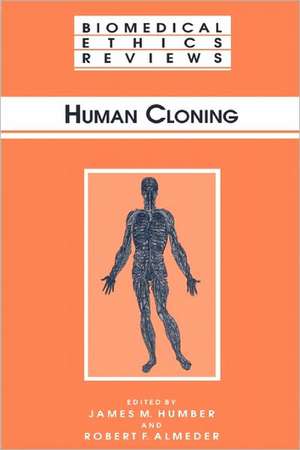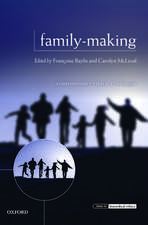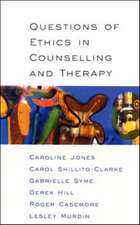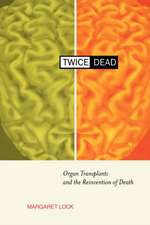Human Cloning: Biomedical Ethics Reviews
Editat de James M. Humber, Robert Almederen Limba Engleză Paperback – 19 noi 2010
| Toate formatele și edițiile | Preț | Express |
|---|---|---|
| Paperback (1) | 370.25 lei 6-8 săpt. | |
| Humana Press Inc. – 19 noi 2010 | 370.25 lei 6-8 săpt. | |
| Hardback (1) | 378.37 lei 6-8 săpt. | |
| Humana Press Inc. – 7 aug 1998 | 378.37 lei 6-8 săpt. |
Din seria Biomedical Ethics Reviews
-
 Preț: 374.49 lei
Preț: 374.49 lei -
 Preț: 373.56 lei
Preț: 373.56 lei - 15%
 Preț: 616.49 lei
Preț: 616.49 lei -
 Preț: 378.37 lei
Preț: 378.37 lei - 15%
 Preț: 619.31 lei
Preț: 619.31 lei -
 Preț: 372.09 lei
Preț: 372.09 lei - 15%
 Preț: 617.76 lei
Preț: 617.76 lei - 15%
 Preț: 626.09 lei
Preț: 626.09 lei - 15%
 Preț: 618.84 lei
Preț: 618.84 lei -
 Preț: 374.29 lei
Preț: 374.29 lei -
 Preț: 380.61 lei
Preț: 380.61 lei -
 Preț: 372.29 lei
Preț: 372.29 lei -
 Preț: 368.37 lei
Preț: 368.37 lei -
 Preț: 373.56 lei
Preț: 373.56 lei -
 Preț: 369.52 lei
Preț: 369.52 lei -
 Preț: 368.20 lei
Preț: 368.20 lei -
 Preț: 368.20 lei
Preț: 368.20 lei - 15%
 Preț: 621.37 lei
Preț: 621.37 lei -
 Preț: 378.74 lei
Preț: 378.74 lei - 5%
 Preț: 692.53 lei
Preț: 692.53 lei - 15%
 Preț: 617.59 lei
Preț: 617.59 lei - 15%
 Preț: 620.12 lei
Preț: 620.12 lei
Preț: 370.25 lei
Nou
Puncte Express: 555
Preț estimativ în valută:
70.86€ • 74.75$ • 59.05£
70.86€ • 74.75$ • 59.05£
Carte tipărită la comandă
Livrare economică 03-17 ianuarie 25
Preluare comenzi: 021 569.72.76
Specificații
ISBN-13: 9781617370762
ISBN-10: 1617370762
Pagini: 228
Ilustrații: IX, 214 p.
Dimensiuni: 152 x 229 x 12 mm
Greutate: 0.34 kg
Ediția:Softcover reprint of the original 1st ed. 1998
Editura: Humana Press Inc.
Colecția Humana
Seria Biomedical Ethics Reviews
Locul publicării:Totowa, NJ, United States
ISBN-10: 1617370762
Pagini: 228
Ilustrații: IX, 214 p.
Dimensiuni: 152 x 229 x 12 mm
Greutate: 0.34 kg
Ediția:Softcover reprint of the original 1st ed. 1998
Editura: Humana Press Inc.
Colecția Humana
Seria Biomedical Ethics Reviews
Locul publicării:Totowa, NJ, United States
Public țintă
ResearchCuprins
Cloning, Historical Ethics, and NBAC.- The Prospect of Human Cloning: An Opportunity for National and International Cooperation in Bioethics.- The Moral Staus of the Cloning of Humans.- Surprise! You’re Just Like Me!: Reflections on Cloning, Eugenics, and Other Utopias.- Religiously Based Objections to Human Cloning: Are They Sustainable?.- Human Cloning in Ethical Perspectives.
Recenzii
". . . an interesting and accessible read. . .chapters provide a useful 'springboard' to encourage further debate and a deeper understanding of the issues."-Bulletin of Medical Ethics
"By including articles that cover a wide range of analytical perspective and moral positions, this volume provides a good overview of the debate on human cloning. George Annas argues that human cloning should be banned because it "radically alters the very definition of what it is to be be human" Michael Tooley finds it morally acceptable, and points out its potential benefits to society. Jan Hellerargues that the common religious objections against human cloning lack substantive moral support. The other three contributors aim primarily to situate the discussion within a larger historical framework." - Quarterly Review of Biology
"A volume in the Biomedical Ethics Review series, this book examines cloning from a number of disciplinary perspectives, including historical, ethical, and religious. In the context of a rapidly burgeoning literature on the topic of cloning and related issues, this addition is welcome in bringing together these different approaches. ...The value of this collection of paper lies at least partly in its reflection on the main themes and trends; partly in its analysis of forms of argument and their applicability to the topic." -International Digest of Health Legislation
"By including articles that cover a wide range of analytical perspective and moral positions, this volume provides a good overview of the debate on human cloning. George Annas argues that human cloning should be banned because it "radically alters the very definition of what it is to be be human" Michael Tooley finds it morally acceptable, and points out its potential benefits to society. Jan Hellerargues that the common religious objections against human cloning lack substantive moral support. The other three contributors aim primarily to situate the discussion within a larger historical framework." - Quarterly Review of Biology
"A volume in the Biomedical Ethics Review series, this book examines cloning from a number of disciplinary perspectives, including historical, ethical, and religious. In the context of a rapidly burgeoning literature on the topic of cloning and related issues, this addition is welcome in bringing together these different approaches. ...The value of this collection of paper lies at least partly in its reflection on the main themes and trends; partly in its analysis of forms of argument and their applicability to the topic." -International Digest of Health Legislation
Textul de pe ultima copertă
In Human Cloning a panel of distinguished philosophers, medical ethicists, religious thinkers, and social critics tackle the thorny problems raised by the now real possibility of human cloning. In their wide ranging reviews, the distinguished contributors critically examine the major arguments for and against human cloning, probe the implications of such a procedure for society, and critically evaluate the "Report and Recommendations of the National Bioethics Advisory Commission." The debate includes both religious and secular arguments, as well as an outline of the history of the cloning debate and a discussion of human cloning's impact on our sense of self and our beliefs about the meaning of life.
Human Cloning offers a timely and concise one volume survey of all the major arguments for and against human cloning. It will well serve medical ethicists, social and cultural critics, public policy specialists, and the educated layperson who wants to better understand this issue and its implications for our society, culture, and civilization.
Human Cloning offers a timely and concise one volume survey of all the major arguments for and against human cloning. It will well serve medical ethicists, social and cultural critics, public policy specialists, and the educated layperson who wants to better understand this issue and its implications for our society, culture, and civilization.














